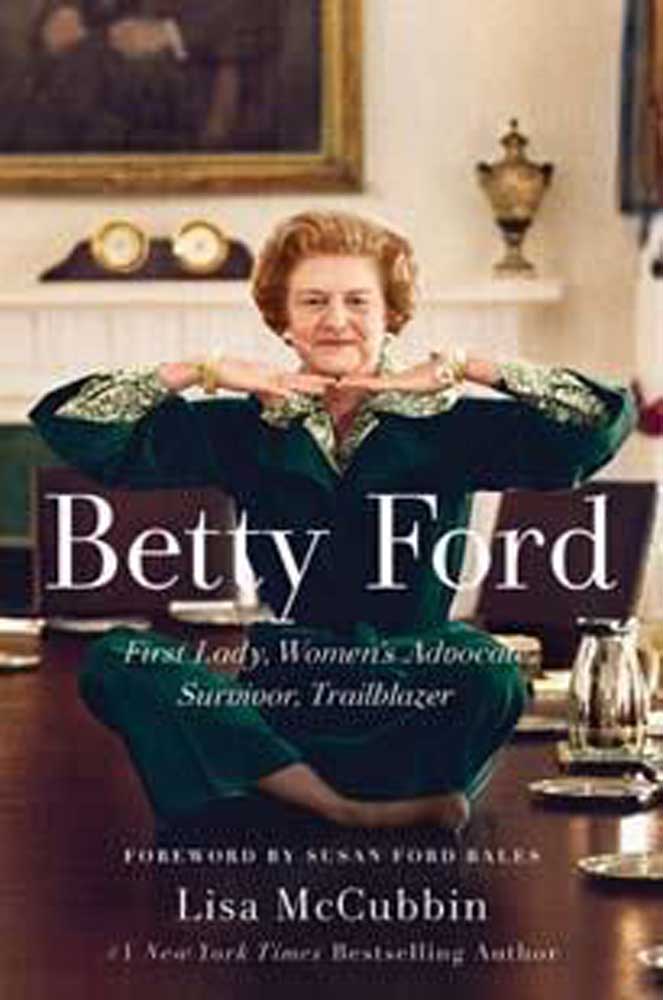How Betty Ford’s courage and candor helped save lives
Published 4:25 am Sunday, September 23, 2018

- "Betty Ford: First Lady, Women's Advocate, Survivor, Trailblazer," by Lisa McCubbin, is published by Gallery, 411 pages, $28.
“If you want Betty to tone it down, then you tell her,” a wise President Gerald Ford warned his two young aides, Dick Cheney and Don Rumsfeld, in August 1975. The first lady had just appeared on “60 Minutes,” speaking candidly about sex and abortion and marijuana only a month after her husband announced he would seek the Republican Party’s nomination for president in 1976.
Luckily no one toned down the frank and funny Betty Ford. As President George H.W. Bush said years later when awarding her the Medal of Freedom, Ford’s “courage and candor have inspired millions of Americans to restore their health, protect their dignity and shape full lives for themselves.”
I knew and admired Ford and count her daughter Susan as a friend. Mrs. Ford, as I always called her, honored me by asking that I speak at her funeral, and I have happily honored her at events celebrating her good works.
Lisa McCubbin’s biography, “Betty Ford: First Lady, Women’s Advocate, Survivor, Trailblazer,” is also celebratory. But it begins on a painful note: the Ford family’s confrontation with “Mother” over her dependence on painkillers and alcohol, and her need for treatment. Though the shadow of those addictions hovers over this book, what we read here is mostly a much lighter tale of a happy family thrust unexpectedly into the glare of the presidency.
Only once do we get a sense of how scary Ford’s episodes could be. When she announced that she was leaving home with terrified, 8-year-old Susan in tow, “her hair was disheveled, like she’d been trying to pull it out, and her eyes — swollen and red from crying — were wild,” McCubbin writes. Congressman Ford, perpetually preoccupied by politics, was summoned to calm his wife down. The children (all four were interviewed for this book) were wary of their mother, worried she might lose it in front of their friends.
On the whole, we don’t see a person losing it in these pages. Here we meet a brave, beautiful and bright woman, who at age 20 catapulted “straight from the sticks” of Grand Rapids, Michigan, to the stage at Carnegie Hall, where she danced as part of Martha Graham’s company.
That short-lived dream come true ended when family lured Betty back to Michigan, where she suffered through a bad five-year marriage. Then a local high school and college football star came back from World War II ready to embark on a political career. It was a career that Betty would share with Gerald Ford for the next 30 years.
As first lady, she learned that her voice mattered: “I have come to realize the power of being able to help.” She enjoyed that power, relishing especially her role as an advocate for women, and when Ford’s campaign for the White House kicked into gear, “Betty’s Husband for President” buttons dotted the rallies.
She changed the conversation around alcohol, affecting who knows how many lives. When she emerged from treatment for alcoholism, the nation rallied around her. She helped ease the stigma, encouraging the public to understand that alcohol addiction was a disease, not a sin.






